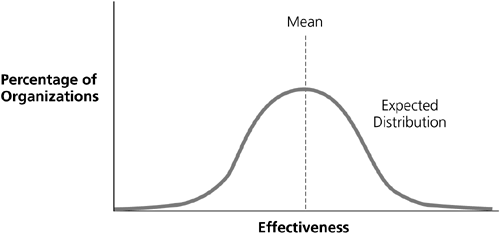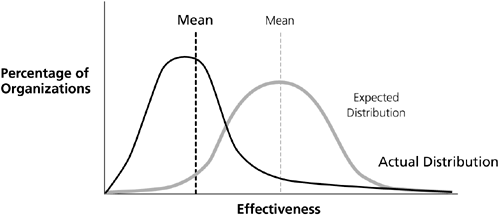State of the Practice
| Most people probably assume that software organizational effectiveness is distributed according to a typical bell curve a few really poor organizations, a few exceptional organizations, and the majority somewhere in the middle. This is shown in Figure 13-1. Figure 13-1. Most people expect organizational effectiveness to be symmetrically distributed, with an equal number of effective and ineffective software organizations.
Contrary to the expectation, the reality is quite different. Due to the slow uptake of effective software practices, as discussed in Chapters 1 and 2, only a handful of organizations are operating at the highest levels. Industry researchers have long observed a tremendous disparity between the best and worst organizations operating within the same industries on the order of 10 to 1.[6] The average organization is much closer to the least effective organizations than to the best, as shown in Figure 13-2. Figure 13-2. The actual distribution of software effectiveness is asymmetric. Most organizations perform much closer to the worst practice than to the best.[7]
The implication of this distribution is that most software personnel have never seen software development at its best. This gives rise to skepticism about whether things are really better anywhere. Even people who have worked in the software industry for 20 or 30 years might never have seen software development at its best. Most of them have spent their entire careers working in organizations to the left side of Figure 13-2. But, as the data in this chapter shows, the best organizations are indeed much better than the average. |
EAN: N/A
Pages: 164

